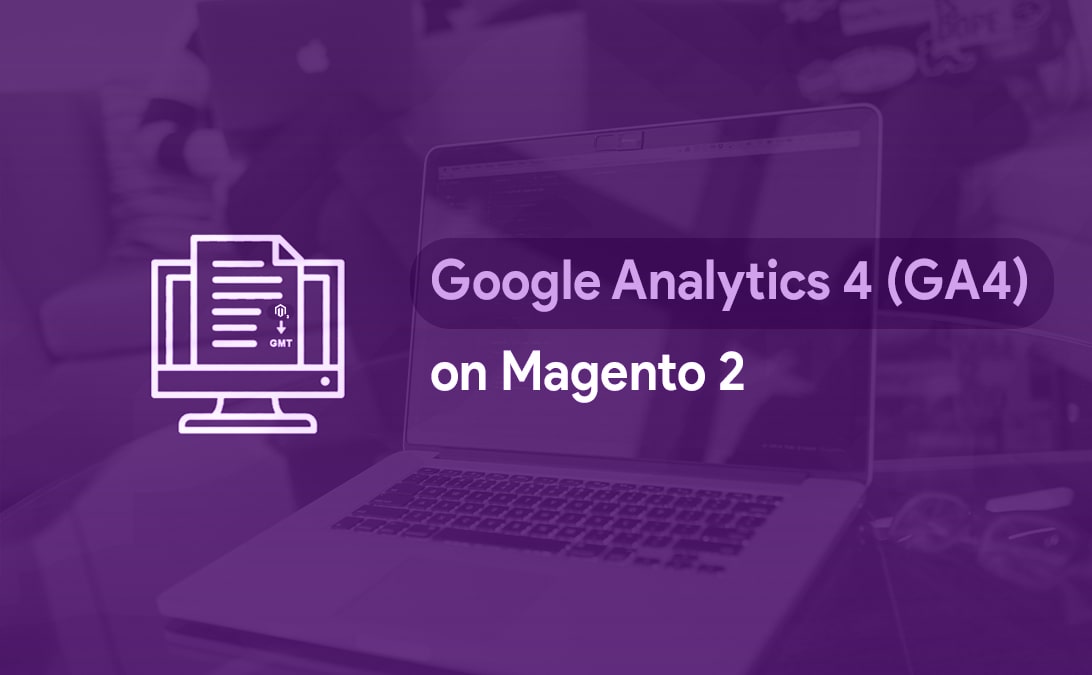
Why Implement Google Analytics 4 on Magento 2
30 August 2022
Why Implement the Latest Google Analytics?
The Google Universal Analytics clock is ticking. Google will end transition to the next generation of analytics in July 2023. Every Magento 2 store that wants to continue with eCommerce tracking will need to use GA 4 from that date.-sssss
This latest version of Google Analytics code is a major update that reflects real online behaviour of shoppers and quite rightly moves away from sessions to events, to enable eCommerce tracking of the entire digital customer journey across multiple websites, apps and devices.
Transitioning to the new Magento 2 Google Analytics may not be easy as certain familiar reports have been removed or replaced. Magento 2 store owners will no longer see metrics such as average and bounce rate.
To help you transition your Google Analytics Magento code without online store interruption, this latest blog will provide a simple, jargon-free summary of the major differences between current Google Analytics and the latest version and how to add Google Analytics to your Magento 2 store for enhanced eCommerce reporting.
How is Google Analytics 4 Different?
GA 4 is a global update of the analytics tracking service provided by Google. It has been publicly beta-tested since 2020, and it has significant differences to the current GA 3 version.
Sessions to Events
GA 4 will move from sessions to events so that Google Analytics in Magento will be based on standardised data across all platforms. For the first time, a Magento store can generate a single report along the entire user journey.
Natural Language Processing
GA 4 also provides machine learning and NLP. This will enable Google Analytics account holders to predict conversions and to use such data to optimise Google Ad campaigns. Machine learning is also useful to find anomalies in the analytics dashboard and other performance reports including no conversion tracking or wrong conversion rate calculations.
New Data Model
Probably the biggest change, as we have already alluded to, is that the new Google analytics code moves from sessions and page views to events and parameters so that every user action is classified as an event. And not only that, the data model allows for each event to be collected by default or configured manually and can contain up to 25 custom parameters. So, a page view is considered an event, and the page language, page referrer and screen resolution, are each considered an event parameter.
Data Streams
The new version of Google Analytics in Magento collects data from websites and apps in the form of data streams, which are a part of a single property. GA 3 uses separate Analytics property settings for each data source, such as a website or mobile app. In GA 4, it is therefore easier to configure Google Analytics to monitor traffic across different sources to enable eCommerce tracking that is far superior and accurate than before.
Time Restrictions on Data Views
GA 3 has no time restrictions to view historical statistics but GA 4 automatically provides data for the last 14 months or for longer periods you will need to create a Google BigQuery.
IP Address Anonymity
The new Google Analytics provides more anonymity as IP anonymisation is enabled by default.
Two Cookie Files
When you update your Magento 2 store and add Google Analytics GA 4, you can track user activity with two rather than one cookie file and both files will last for two years.
Segmented Analysis
New Google Analytics offers more parameters, metrics, and relationships between them and events. This makes Google Analytics in Magento and specifically audience analysis more powerful. This is particularly important when predicting the number of new customers transacting with your website in the near future and ensuring stock and resources are planned to meet demand.
Cross-domain tracking
The holy grail. This feature tracks conversions of customers from their true source and excludes any ‘middleman’ website. So if your customers respond to an email from you but authorises with a social network, the conversion will now be linked to the email campaign. Cross-domain tracking greatly improves tracking the real source of influence and the success of each channel.
Engagement Tracking
GA 4 tracks engagement by sessions with interaction, engagement rate, and even time of involvement (which could not be tracked on smartphones with GA 3).
Fewer Reports
The Standard Reports feature now has fewer data options for simplicity: Users, Demographics, Behaviours, and Devices.
Custom Reports
This new option means you can create customisable reports that were available only in paid-for GA 360. In addition, the new Google Analytics integrates with Google BigQuery.
Monitoring of Critical Events
GA 4 allows Magento website owners to configure Google Analytics to track anomalies of the data. Plus, monitoring can be done hourly compared with once a day in GA 3.
Path Analysis
GA 4 provides customer path analysis which was only available in paid-for GA 360.
Integration with BigQuery
The new Google Analytics GA 4 introduces free integration with BigQuery but with limits. Integration is limited to 50 text and 50 numeric parameters for events.
New tracking capabilities of GA 4
The new Google Analytics GA 4 is a major update of the analytics tracking process by including user behaviour monitoring on the web and apps. Website owners who wish to update their eCommerce tracking capabilities should add Google Analytics code to Magento and here’s why.
Basic Event Tracking
Each fundamental step in the Magento journey is tracked with GA 4 as soon as the Enhanced Measurement option is activated. Such events include clicking on an ad or link, checkout in the mobile app, cancelling a paid subscription, scroll tracking, a site search and video engagement. Unlike GA 3, there is no need to write specific Google Analytics code to enable this type of basic tracking.
Custom Event Tracking
With GA 4, analytics code to Magento means that website managers can customise tracking of predefined events. And for any additional tracking, there is an option to configure Custom Events for events not covered by predefined configuration.
Tracking on Any Platform
New Google Analytics code can track customers across multiple platforms. It provides a comprehensive history of activity for every tracked app or website and a more accurate user count as GA4 is far better at de-duplicating across devices.
Engagement Measurement
Understanding unengaged user behaviour by using the bounce rate metric is no longer required in the new Google Analytics code GA 4. The depth of engagement can now be measured. Video engagement for example can be monitored by assessing which video is launched, when the video is paused and if the video is fully viewed.
AI for Predicting Outcomes
If you add Google Analytics in its most recent version to Magento, artificial intelligence will analyse the historical user tracking code and predict future customer behaviour for more precise marketing.
AI will help marketers make informed assumptions on events such as purchases, user churn rate and revenue.
Google Analytics in Magento 2
Magento provides embedded support for Google Analytics. But be aware that for the latest version Magento 2.4.4, this eCommerce platform does not have the data layer required for GA 4 to run out of the box.
GA 4 requires a third-party plugin and the use of Google Tag Manager extension to check that GA tags are implemented correctly. Magento development agency can ensure right implementation of the GA tags for stores based on the different versions of the eCommerce platform.
Summary
Any eCommerce Magento store in 2024 will benefit from the latest Google Analytics 4. This tool is designed to accurately and comprehensively track the customer journey across multiple domains and devices.
With GA 4, stores on Magento 2 can track events not only on the website but also in the mobile app and other sales channels. There is a broader ability to analyse the user actions sequence compared to Universal Analytics GA 3 and so finding bottlenecks in the sales funnels becomes much easier. In addition, online businesses can build more personalised, relevant communication with customers when they can accurately predict their behaviour.
If you are keen to add Google Analytics code to Magento, give chilliapple a call. Our Magento certified developers live and breath the platform and fully understand the requirements of implementing Google Analytics code to Magento, whatever the version. We can add a Google Analytics account, support your implementation, configure a tracking ID for each event and ultimately kick start your eCommerce performance seamlessly without business interruption.





